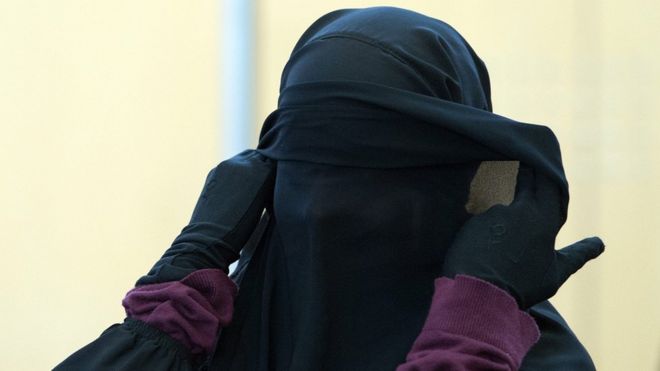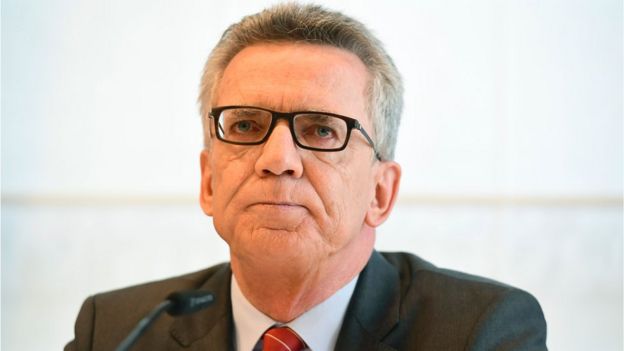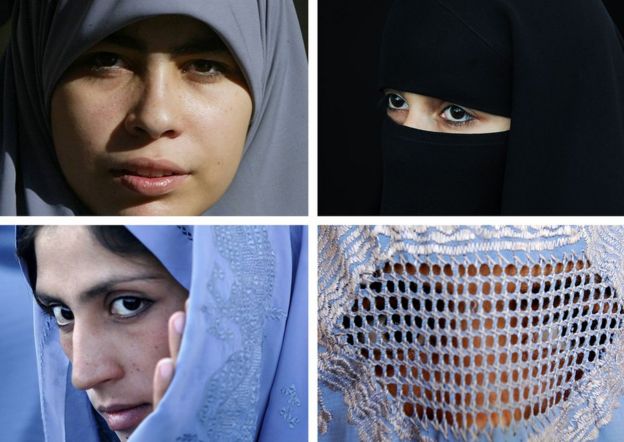 Image copyrightEPA
Image copyrightEPAIf Germany’s interior minister has his way, Muslim women will be banned from covering their faces in nurseries, schools and universities, in public offices and courts and while driving.
Thomas de Maiziere has stopped short of proposing a complete ban. It is widely accepted that to totally ban the burka would violate Germany’s constitution, which fiercely upholds the right to religious freedom.
Nevertheless, the minister said he and his fellow conservatives completely opposed the burka or, for that matter, any other full face veil.
“It doesn’t fit into our open society,” said Mr de Maiziere.
“Showing your face is fundamental for communication, for the cohesion of our society.”
In reality, it is uncommon to see women wearing the full face veil in Germany.
Friday’s announcement was really all about politics.
 Image copyrightAFP
Image copyrightAFPTwo issues will dominate next year’s general election in Germany; how to integratemore than a million asylum seekers, and how to tackle the threat posed by Islamist terrorism.
Both issues are already the subject of sensitive public debate and Angela Merkel’s conservatives are losing votes to the right wing anti-Islam party Alternative fuer Deutschland.
The party is expected to take seats in parliament for the first time next year and it’s polling at 19% of the vote in Mecklenburg Vorpommen and 14% in Berlin.
Both regions will hold state elections in September. It was no accident that the interior ministers of both states accompanied Mr de Maiziere as he made his announcement on Friday.
This is an unashamed attempt to lure back voters.
 Image copyrightAFP
Image copyrightAFP
The proposal is not yet draft legislation. If it gets that far, it is likely to encounter significant resistance in the German parliament.
But Germany feels ill at ease.
It is a country unsettled by the arrival of hundred of thousands of refugees and on edge after a recent spate of violent attacks – two of which were perpetrated by asylum seekers who are thought to have been inspired by IS.
Friday’s announcement is a powerful indication of just how deeply this country is changing.